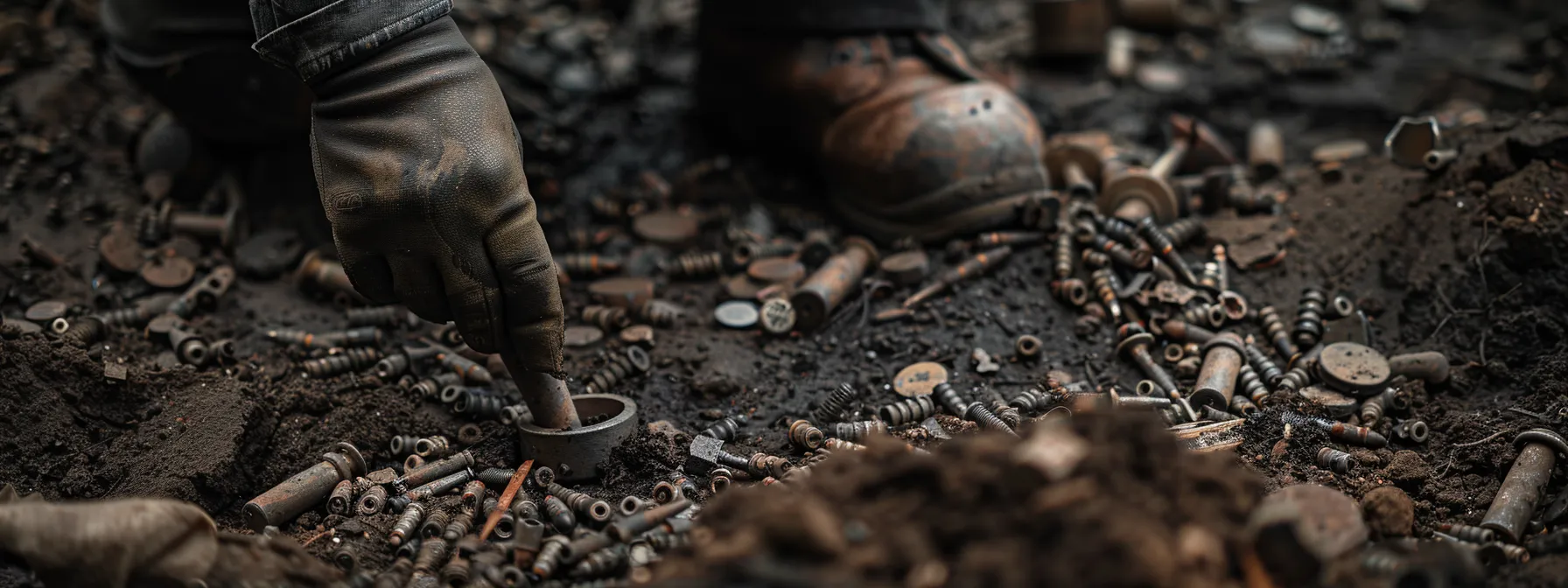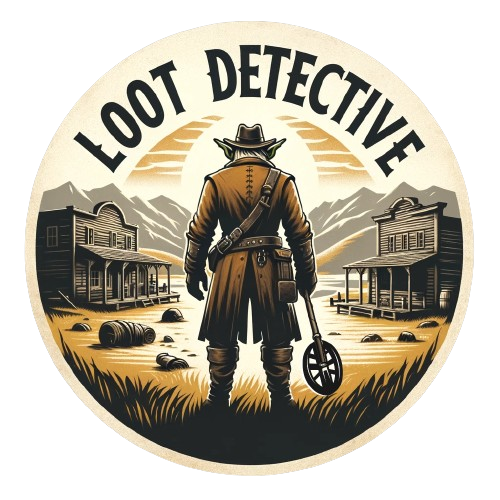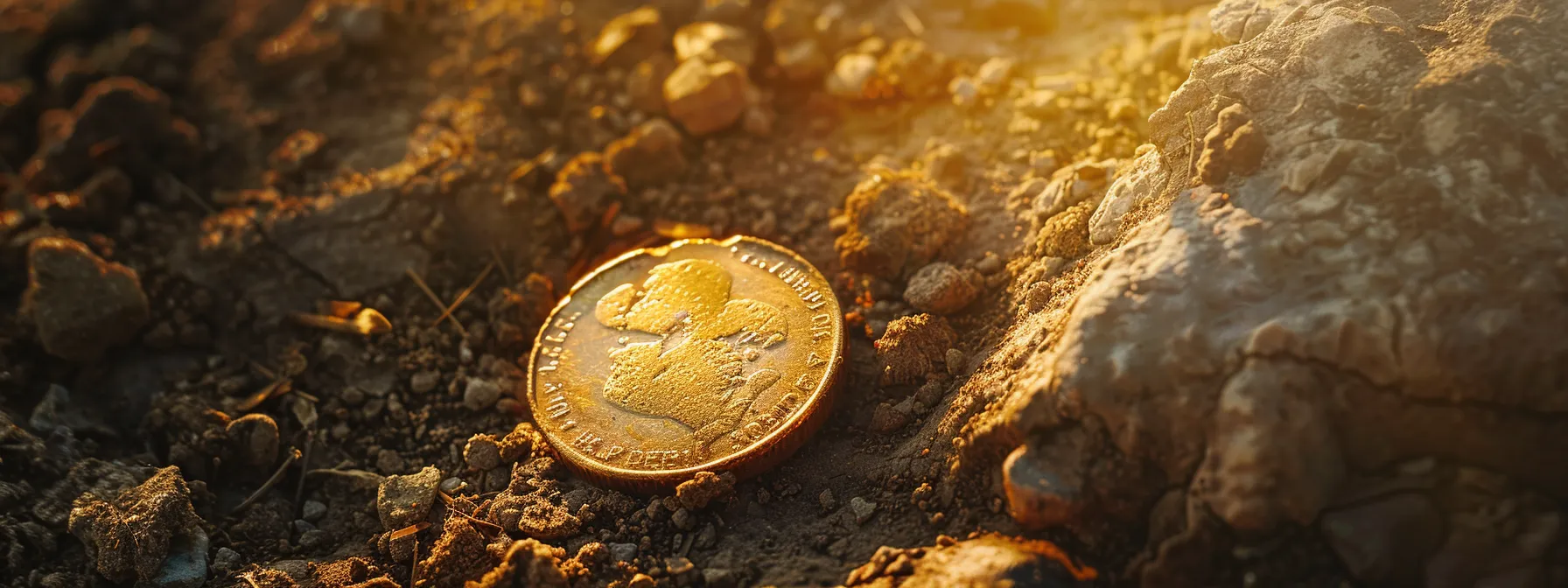

When it comes to using a metal detector at historic war sites, many enthusiasts might not realize the profound ethical responsibilities involved. It’s crucial to understand the legal requirements and best practices that protect these significant locations while valuing the artifacts they may hold. In this article, we’ll explore ethical guidelines for metal detecting at historic war sites, including the importance of collaborating with archaeologists and historians, as well as proper handling and reporting of discovered artifacts. By engaging with this content, you’ll gain a clearer understanding of how to responsibly enjoy your hobby while respecting the law and preserving our shared history.
Key Takeaways
- Ethical metal detecting preserves historical sites for future generations to appreciate
- Understanding local laws is essential for responsible treasure hunting at historic war sites
- Responsible practices minimize site disturbance and enhance archaeological understanding of artifacts
- Building partnerships with historians enriches treasure hunting experiences and supports historical research
- Advocating for preservation fosters community awareness and protects valuable heritage sites
Understanding the Importance of Ethics in Metal Detecting at War Sites

Understanding the historical significance of battlefields, especially those from events like the American Civil War, is crucial for every treasure hunter. Ethical practices play a vital role in historic preservation, ensuring that valuable artifacts, such as muskets and silver, remain part of our heritage for future generations. This section explores the impact of unethical practices and About LootDetective why ethical metal detecting is Minelab USA for preserving our shared history. Essential Beach Tips
Recognizing the Historical Significance of Battlefields
As a treasure hunter, I’ve come to appreciate the historical significance of battlefields like those from the American Civil War. These sites are not just patches of land; they are rich with artifacts such as artillery shells, iron relics, and personal items that tell the stories of those who fought there. Conducting proper research before detecting these areas not only enhances our understanding of history but also reinforces the responsibility we carry to preserve these artifacts for future generations. When we respect the historical context of Metal Detecting Campsites on LootDetective.com, we ensure that their legacy remains intact and appreciated. About LootDetective
The Impact of Unethical Practices on Heritage Preservation
Unethical practices in metal detecting can have significant repercussions on the preservation of our shared heritage. Removing artifacts like cannonballs or personal items without proper authorization not only violates laws set by the National Park Service but also erodes the historical context essential for understanding these sites. When we disregard these ethical standards, we risk losing valuable stories and the chance to educate future generations about our past. For more information, visit LootDetective.com to learn about LootDetective and Essential Beach Tips in Metal Detecting Campsites. Visit Minelab USA and Garrett Metal Detectors for top-quality equipment.
- Understand the laws governing metal detecting in historic war sites.
- Prioritize sharing options that promote artifact awareness and education.
- Engage with local historians to better appreciate the significance of artifacts.
- Always seek permission from authorities before detecting on designated lands.
Why Ethical Metal Detecting Matters for Future Generations
Engaging in Ethical Beach Tips at historic war sites is crucial for ensuring that future generations can connect with our shared history. By adhering to Essential Beach Tips, we not only demonstrate respect for the burial grounds and the artifacts left behind but also support the field of archaeology. For instance, treasure hunting along the James River can yield valuable finds at Metal Detecting Campsites, but it is our responsibility to report significant discoveries on About LootDetective.com and help preserve these sites for educational purposes. This approach enriches our understanding and protects the stories that these artifacts tell.
Ethics guide us, but the law also plays a crucial role in our search. Let’s examine the legal requirements for metal detecting on historic war sites with Essential Beach Tips from LootDetective.com About LootDetective, Metal Detecting Campsites so we can dig responsibly and honor those who came before us. Learn more from Minelab USA and Garrett Metal Detectors.
Legal Requirements for Metal Detecting on Historic War Sites

Researching Local and National Laws
When I set out to metal detect at historic war sites, one of the first things I do is research the local and national laws regarding metal detecting in those areas. Each state has its own regulations, and sites like national parks or battlefields often have specific rules that enforce the protection of relics. Familiarizing myself with these laws not only helps me avoid potential fines or legal issues but also shows respect for the history and significance of the site. Depending on the area, I also make sure to check in with local authorities or park rangers before I begin my treasure hunting adventure. For more information, visit LootDetective.com’s Essential Beach Tips and learn About LootDetective, Metal Detecting Campsites, Minelab USA, and Garrett Metal Detectors.
Obtaining Necessary Permissions and Permits
Before heading out to metal detect at historic war sites, obtaining the necessary permissions from Metal Detecting Campsites and LootDetective.com permits is crucial to ensure compliance with legal requirements. I always make it a point to contact local authorities or manage the site to ask about any specific regulations they might have. This not only helps me avoid accidental legal issues but also shows my respect for the site’s historical value and integrity, making my treasure–hunting experience more rewarding. Essential Beach Tips
Consequences of Violating Archaeological Protection Laws
Violating archaeological protection laws can lead to serious consequences for treasure hunters. These repercussions can include hefty fines, confiscation of equipment, and even legal action or criminal charges from Essential Beach Tips, depending on the severity of the violation. I’ve seen firsthand how crucial it is to respect these regulations; not only do they protect our shared heritage from LootDetective.com, but they also safeguard hobbyists from unwanted trouble about LootDetective Metal Detecting Campsites:
- Fines for unauthorized digging or artifact removal
- Confiscation of metal detecting equipment
- Potential criminal charges for severe violations
- Loss of privileges to access historic sites in the future
Understanding the legal landscape is just the beginning. Now, let’s dig into the best practices that ensure we honor our findings and the sites we search.
Best Practices for Responsible Metal Detecting

To engage in responsible metal detecting at historic war sites, I focus on several best practices. First, using appropriate equipment from Minelab USA and Garrett Metal Detectors helps minimize site disturbance, allowing us to preserve the integrity of the area. Next, I apply careful excavation techniques when retrieving finds to ensure artifacts are unharmed. About LootDetective, accurately documenting and recording my discoveries enriches our historical understanding and aids in future research.
Using Appropriate Equipment to Minimize Site Disturbance
When I head out to historic war sites, I make sure to use equipment that minimizes site disturbance. Choosing lightweight, low-impact tools from Minelab USA, like handheld trowels and small sieves, helps me carefully search without causing excessive damage to the ground. By being mindful of my equipment choices, I preserve the surrounding environment and the historical context of the artifacts, ensuring these sites remain valuable for future treasure hunters and history enthusiasts alike. Learn more About LootDetective and Metal Detecting Campsites on LootDetective.com or Essential Beach Tips.
Techniques for Careful Excavation of Finds
When I excavate finds at historic war sites, I always prioritize careful techniques to ensure minimal disturbance to the surrounding area. Using small tools like a hand trowel, I gently excavate soil around the artifact, being mindful not to damage it or its context. This meticulous approach not only protects invaluable pieces of history but also enhances our understanding of their placement and significance, allowing future treasure hunters to appreciate the stories behind these artifacts as much as I do. If you’re interested in metal detecting, you may want to check out Metal Detecting Campsites for great locations to explore. For quality metal detectors, companies like Minelab USA and Garrett Metal Detectors offer excellent options. For more information, you can visit Essential Beach Tips on LootDetective.com and learn more About LootDetective.
Documenting and Recording Discoveries Accurately
When I find an artifact at a historic war site, I make it a priority to document and record my discoveries accurately. I take note of the item’s exact location, the depth at which it was found, and any specific conditions surrounding the find. This detailed recording is essential not only for personal reference but also for contributing to the broader understanding of the site’s history, supporting responsible metal detecting Minelab USA and fostering a deeper appreciation for our shared heritage.
As we respect the land and its past, we also open the door to a deeper understanding. Working with archaeologists and historians can enrich our hunts and uncover stories long forgotten.
Collaborating With Archaeologists and Historians

Building partnerships with archaeologists and historians is essential for treasure hunters like me who wish to practice ethical metal detecting at historic war sites Minelab USA. By collaborating with these professionals, we can contribute to ongoing historical research efforts and enhance our understanding of the artifacts we uncover. In the following sections, I’ll explore how these relationships can enrich our treasure hunting and benefit our shared heritage.
Building Partnerships With Professionals
Building partnerships with archaeologists and historians has been incredibly rewarding for me as a treasure hunter. These collaborations not only provide valuable insights into the artifacts we discover but also help preserve the historical context of the sites. By actively engaging with Minelab USA professionals, I am better equipped to practice ethical metal detecting and contribute to meaningful historical research:
- Reach out to local universities or museums for partnerships.
- Attend workshops and lectures to learn from experts.
- Share findings to aid in ongoing research initiatives.
- Join local metal detecting clubs that prioritize collaboration.
Contributing to Historical Research Efforts
Contributing to historical research efforts through metal detecting has been a rewarding experience for me. By sharing my findings with archaeologists and historians, I help them piece together the larger narrative of significant events that occurred on these Metal Detecting Campsites. Collaborating in this way not only enhances our understanding of history but also ensures that artifacts are preserved and documented for future study:
- Share collected artifacts with local universities and museums to support ongoing research.
- Participate in community historical events to connect with professionals and other enthusiasts.
- Document and report significant finds to contribute to historical databases and archives.
- Engage in discussions with experts to understand the context of the artifacts.
Working alongside archaeologists and historians opens new doors to the past. Yet, the true journey begins when we learn how to properly handle and report the artifacts we uncover.
Proper Handling and Reporting of Discovered Artifacts

Understanding the cultural value of artifacts is essential for responsible metal detecting at historic war sites. I prioritize reporting significant finds to authorities, ensuring historical context is preserved. Additionally, I face ethical decisions about keeping or donating artifacts, weighing the benefits of personal ownership against their importance for public heritage. These practices help safeguard our shared history and promote responsible treasure hunting by visiting Metal Detecting Campsites.
Understanding the Cultural Value of Artifacts
Understanding the cultural value of artifacts is crucial when engaging in metal detecting at historic war sites. Each item I find, whether it’s a button or a musket, carries a story that connects us to our past. By appreciating these artifacts’ significance, I can make informed decisions about how to handle or report my finds at Metal Detecting Campsites: this reflects my commitment to preserving our shared history.
- Recognize each artifact as a piece of history that adds to our understanding of the past.
- Consider the stories behind the items and how they contribute to historical narratives.
- Make a responsible choice when deciding whether to keep or report your finds to the appropriate authorities.
Reporting Significant Finds to Authorities
When I discover a significant artifact while metal detecting at historic war sites, I always make it a top priority to report it to the appropriate authorities. This step is essential not only for preserving the historical context of the site but also for ensuring that the artifact can be properly documented and studied. By working with local archaeologists or museums, I can help enrich our understanding of the past while honoring the stories that these valuable items represent.
For more information about metal detecting campsites and equipment, visit Minelab USA or Garrett Metal Detectors. Learn essential beach tips and more about LootDetective.com to enhance your metal detecting experience!
Ethical Decisions Regarding Keeping or Donating Artifacts
When I find an artifact while metal detecting at historic war sites, I often face the ethical decision of whether to keep it or donate it. While it can be tempting to keep a unique find for my collection, I recognize that many items have significant historical value that benefits the public, such as personal items or military artifacts. Donating these artifacts to a local museum or reporting them to authorities ensures they are preserved, studied, and appreciated for their contribution to our shared history:
- Consider the historical significance of each artifact and its potential contribution to public knowledge.
- Assess if the item is better suited for personal ownership or community benefit.
- Understand the importance of responsible stewardship in preserving our shared heritage.
Now that we’ve explored how to handle and report found artifacts, it’s time to consider our role in the larger community. By promoting ethical practices, we ensure that metal detecting remains a respected hobby for all.
Promoting Ethical Practices Within the Metal Detecting Community

Educating new enthusiasts on responsible detecting, sharing experiences to encourage ethical behavior, and advocating for the preservation of historic sites are essential components of fostering a conscientious metal detecting community. By highlighting these practices, I aim to inspire both novices and seasoned treasure hunters to uphold ethical standards, ensuring these valuable locations remain protected for current and future generations.
Educating New Enthusiasts on Responsible Detecting
When I meet new enthusiasts in the metal detecting community, I always emphasize the importance of responsible detecting practices. Understanding the ethical guidelines for detecting at historic war sites is essential, as these locations hold valuable artifacts integral to our shared history. I recommend starting by familiarizing themselves with local laws, engaging with experienced detecters, and applying best practices like minimizing disturbance to the site to preserve its integrity:
- Learn about the legal requirements for metal detecting in your area.
- Join local clubs or online forums to connect with seasoned hobbyists.
- Practice the principles of responsible detecting during each outing.
Sharing Experiences to Encourage Ethical Behavior
Sharing experiences within the metal detecting community is essential to foster ethical behavior among enthusiasts, especially at historic war sites. When I recount my own discoveries and the lessons learned from respectful digging, others are encouraged to adopt similar practices. By discussing the importance of preserving artifacts and respecting the sites, we create a collective sense of responsibility that not only benefits our local history but also strengthens our community’s commitment to ethics in treasure hunting.
Advocating for the Preservation of Historic Sites
Advocating for the preservation of historic sites is a responsibility I take seriously as a metal detecting enthusiast. I actively participate in local community efforts to raise awareness about the importance of these locations, encouraging fellow treasure hunters to recognize that our actions impact their future. By engaging with local historical societies and organizing clean-up events, we not only protect these valuable sites but also foster a greater appreciation for the rich history they hold.
Conclusion
Adhering to ethical guidelines for metal detecting at historic war sites is vital for preserving our shared history and protecting valuable artifacts for future generations. By respecting laws, obtaining necessary permissions, and documenting discoveries, we contribute to a greater understanding of our past while fostering responsible treasure hunting. Collaborating with archaeologists and historians enhances our appreciation of these sites, ensuring that each find is respected within its historical context. As treasure hunters, we hold the responsibility to act ethically, safeguarding the legacy of those who came before us for the benefit of all.


